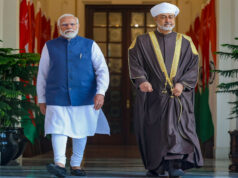Pakistan’s economy is in doldrums. Inflation touched an alarming 12.5 per cent in December; the central bank has forecast it will remain between 9 per cent and 11 per cent this year; the country’s currency has lost 30 per cent in the past three years. The International Monetary Fund (IMF) has agreed to a US $6 billion bailout; add to that existing loans (around $8 billion) from China, Saudi Arabia and the UAE. Fuel is on fire after the government raised prices of all petroleum products by Rs10-12 per litre earlier this week. Finance Minister Shaukat Tarin realises things are getting out of hand. “We want to get out of the circle of repeatedly going to the IMF and other countries to beg for loans,” he said at a public event recently. Government revenues remain a concern. Of 38 million potential taxpayers, only 3 million actually pay taxes, the minister rued, saying “we will broaden the tax net”. “Pakistan—a country of more than 200 million people—needs some drastic steps to improve its economy.” Indeed. In December, the Pakistani embassy in Serbia trolled Prime Minister Imran Khan on Twitter over non-payment of salaries due to which the children of embassy staffers had been forced out of school for non-payment of fees. Later, the embassy claimed its Twitter handle had been hacked! It has now emerged that the Pak mission in Dhaka flagged similar concerns in November last year, albeit through email. It sought additional funds worth over Rs 1 crore for payment of school fees. What happened thereafter isn’t public knowledge.




